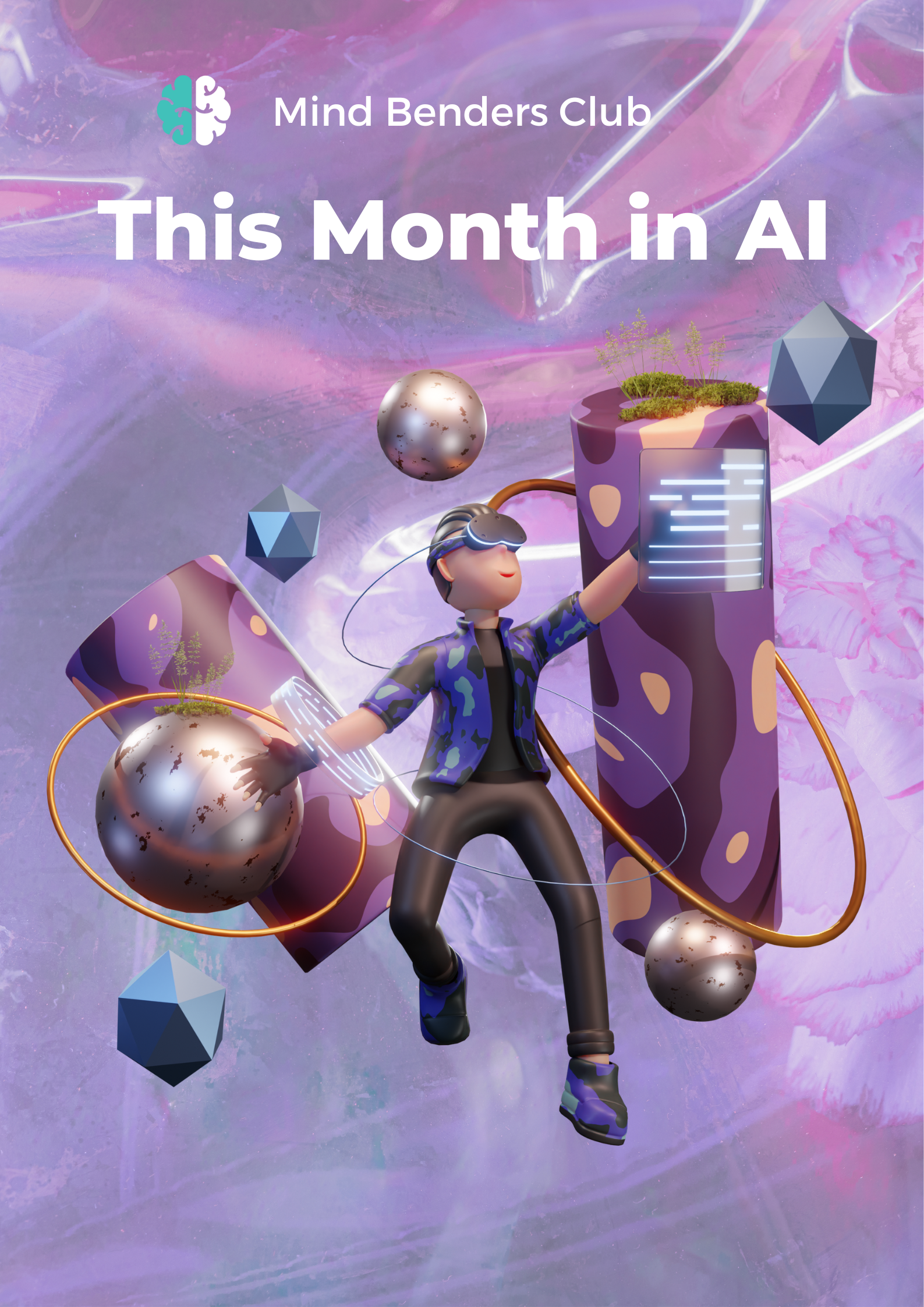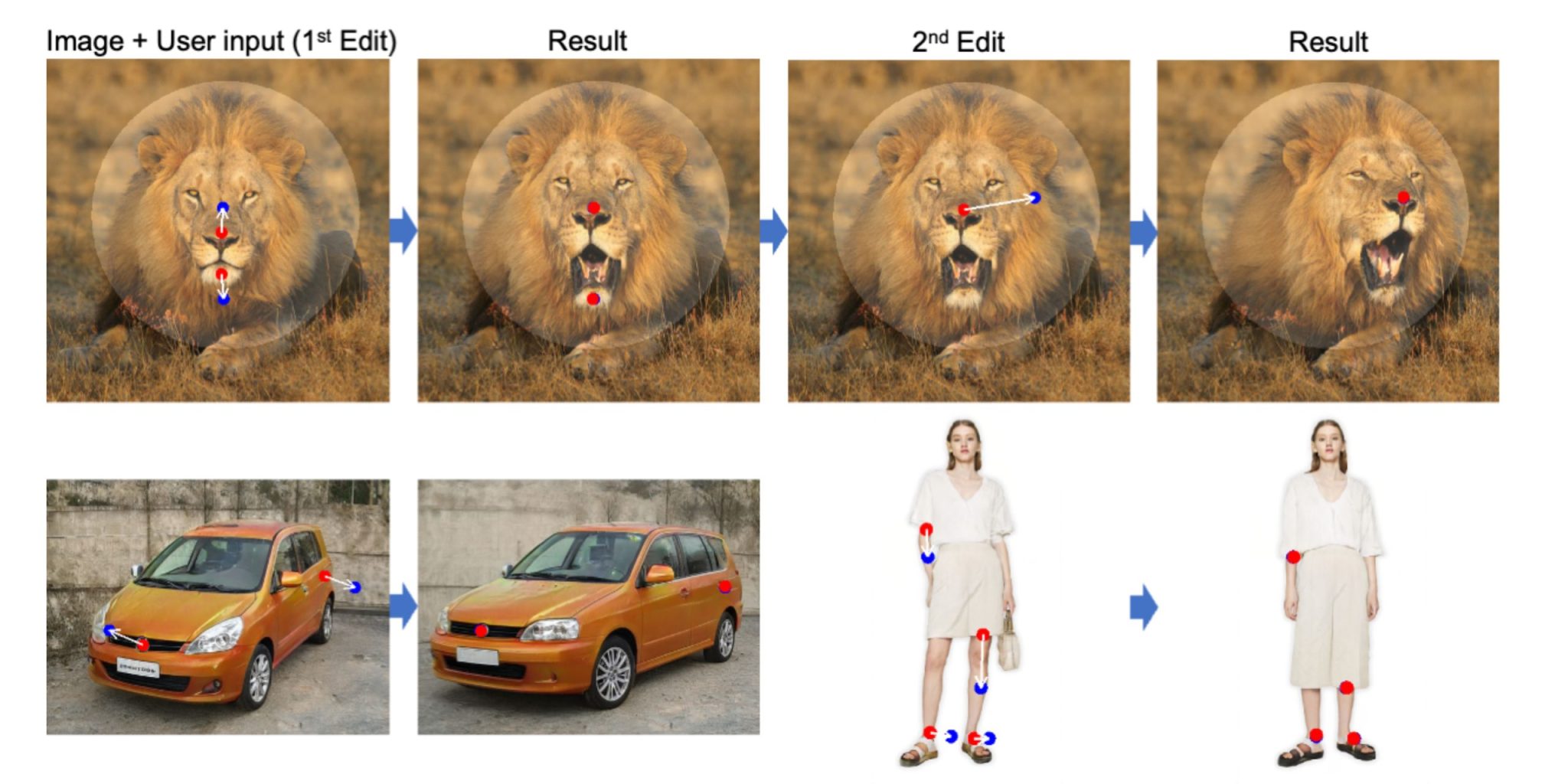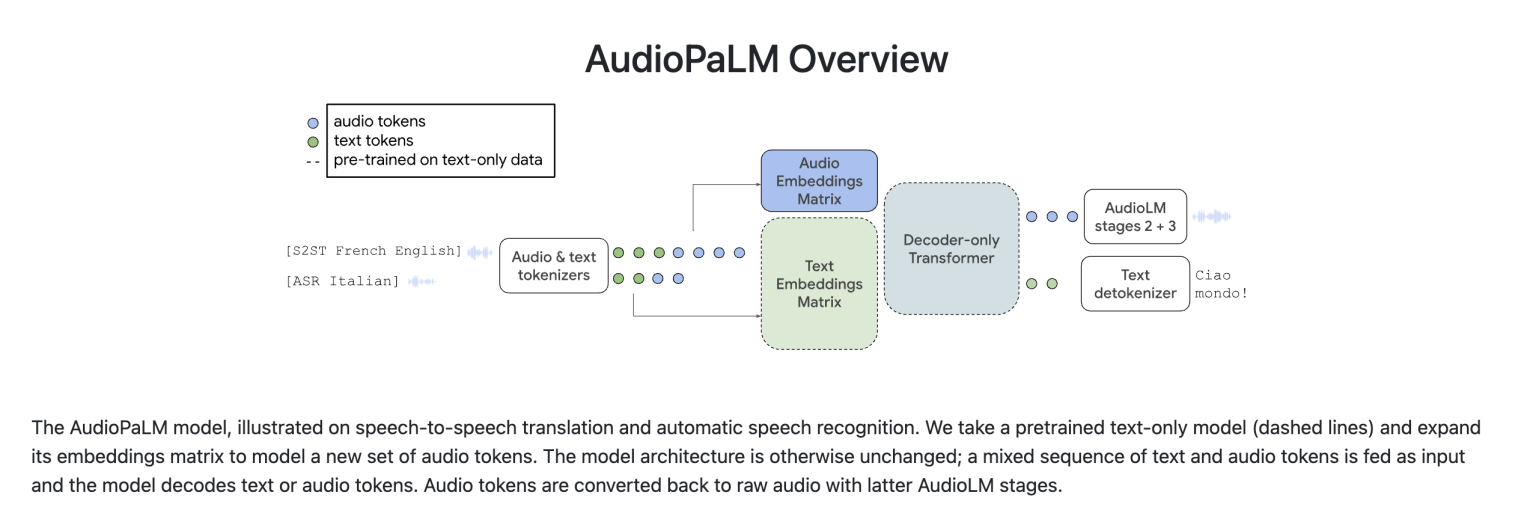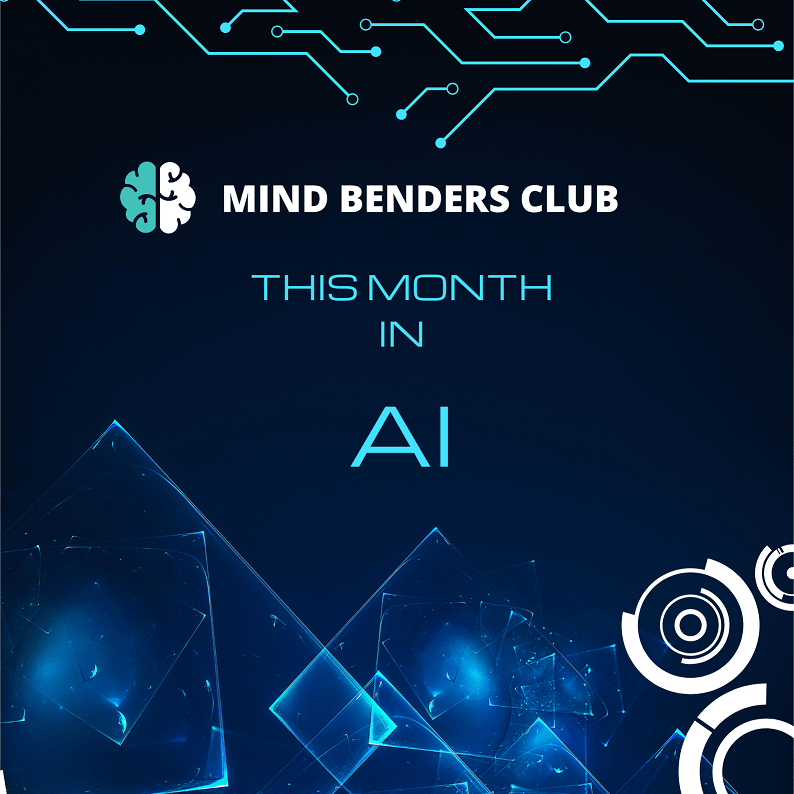Artificial Intelligence (AI) is becoming more and more crucial in influencing how we work and live in today's quickly changing technology landscape. Automation is one of the most interesting uses of AI because it has the ability to boost productivity, streamline procedures, and usher in a smarter era. We'll look at the main aspects of AI automation in this post.
4 posts tagged with "AI"
View All TagsThis Month in AI - June 2023

Code Optimization Revolutionized: Google DeepMind's AI Unleashes New Speed-Boosting Technique. 1
DeepMind's AlphaDev AI achieves groundbreaking speed improvements in sorting algorithms, surpassing existing methods by up to 70%. Its innovative techniques have been adopted by millions of software developers, marking the first integration of AI-discovered algorithms in language updates. DeepMind's gamified approach, using reinforcement learning, trains AlphaDev to construct faster and correct algorithms. This breakthrough revolutionizes code optimization and sets the stage for further AI-driven innovations in computer science.
Elevating the Shopping Experience with AI Virtual Try-On on Google Shopping. 2

Google Shopping has introduced AI Virtual Try-On, a new feature that allows users to virtually try on beauty products before buying them. Using advanced machine learning algorithms and facial recognition technology, the feature provides realistic representations of the products on the user's face. It enhances convenience, addresses concerns about online shopping, and offers a seamless experience. Users can access the feature from Google Search, Google Shopping, or participating retailer websites, making informed decisions with detailed product information and user reviews. This innovation bridges the gap between online and in-store try-ons, revolutionizing the beauty shopping experience.
Ink AI Unveils ChatGPT-Based E-book Generator for Effortless Full-Length E-book Creation. 3
Ink AI has introduced a game-changing e-book generator tool that utilizes ChatGPT, an AI language model, to effortlessly create full-length e-books. By inputting prompts, users receive context-aware responses that form the basis of their e-books, making the writing process faster and more efficient. The tool allows customization of genre, style, and length, and the user-friendly interface simplifies content creation. Ink AI's e-book generator opens up new possibilities for authors, content creators, and publishers by revolutionizing the e-book creation process with AI technology.
Meta Unveils Stablediffusion: A Groundbreaking AI Model for Music Generation. 4
Meta has introduced Stablediffusion, an advanced AI model called MusicGen, designed for music generation. Unlike traditional models, Stablediffusion produces stable, coherent, and emotionally engaging musical compositions. Trained on diverse musical genres, the model incorporates stability mechanisms for smooth transitions and consistent structures.
It considers melody, harmonies, rhythms, and tonal variations, resulting in natural and professional-sounding compositions. Stablediffusion offers a powerful tool for musicians, composers, and music enthusiasts, revolutionizing AI-generated music with its stable and artistically satisfying output.
Draggan Goes Open Source: Empowering Developers with Advanced AI Framework. 5

Draggan, an advanced AI framework focused on reinforcement learning, has been released as open source. This allows developers worldwide to access and utilize its capabilities for training AI models. Draggan simplifies the process with its user-friendly interface, extensive documentation, and pre-built components, enabling faster development and deployment of AI systems. By democratizing access to this powerful tool, the open-source release of Draggan promotes collaboration and accelerates advancements in AI research and application development.
MIT Introduces New Model for Accelerated Drug Discovery. 6
MIT researchers have developed a groundbreaking AI model called AccelerateDrug, which revolutionizes the process of drug discovery. The model utilizes advanced machine learning algorithms to rapidly analyze chemical and biological data, predicting the effectiveness of potential drug compounds. By significantly reducing experimentation time and resources, AccelerateDrug streamlines the drug discovery process and expedites the development of new medications.
The model has demonstrated high accuracy and outperformed existing methods in predicting drug efficacy. AccelerateDrug has the potential to accelerate the availability of life-saving treatments, benefiting patients and advancing healthcare outcomes.
Google Introduces AudioPalm: Bridging the Gap between Text and Voice. 7

Google has introduced AudioPalm, an innovative technology that bridges the gap between text and voice. Using advanced AI algorithms, it converts written text into human-like speech and transcribes spoken language into written text accurately. AudioPalm enhances accessibility, user experiences, and content creation, benefiting individuals with visual impairments and those seeking a more immersive interaction.
The technology has applications in education, entertainment, and accessibility services, and it integrates with existing Google services like Google Assistant and Google Translate. Google's AudioPalm represents a significant advancement in natural language processing, enabling seamless conversion between text and voice for enhanced user experiences.
- https://www.deepmind.com/research/highlighted-research/alphago↩
- https://blog.google/products/shopping/ai-virtual-try-on-google-shopping/↩
- https://goodereader.com/blog/e-book-news/new-chatgpt-based-e-book-generator-tool-from-ink-ai-can-create-full-length-e-books-easily↩
- https://analyticsindiamag.com/meta-releases-stablediffusion-for-music-musicgen/↩
- https://analyticsindiamag.com/draggan-is-finally-open-source/↩
- https://news.mit.edu/2023/new-model-offers-speedy-drug-discovery-0608↩
- https://google-research.github.io/seanet/audiopalm/examples/↩
This Month in AI - May 2023

Google's PaLM 2: Revolutionizing Language Modeling with Multilingual Proficiency, Reasoning Abilities, and Coding Proficiency. 1
Discover the cutting-edge advancements in AI from Google as they unveil PaLM 2, their next-generation language model. PaLM 2 has undergone extensive training on multilingual text, enabling it to understand, generate, and translate nuanced language across more than 100 languages. With improved reasoning capabilities and proficiency in programming languages, PaLM 2 demonstrates its potential for logic, common sense reasoning, mathematics, and coding tasks.

Google has already integrated PaLM 2 into over 25 products and features, empowering users worldwide with enhanced language generation, efficient workspace features, and productivity tools. Through the development of PaLM 2, Google continues to drive innovation in AI and deliver real-world benefits in areas like healthcare and creative endeavors.
Meta's AI breakthrough: Speech recognition for 1,000+ languages now open source, paving the way for language preservation and universal communication. 2
Meta's AI breakthrough empowers speech recognition in over 1,000 languages, a significant leap towards preserving endangered languages. The company is sharing these models as open source on GitHub, enabling developers to build inclusive speech applications for diverse languages. Existing speech recognition models cover a mere fraction of the world's 7,000 languages due to limited labeled training data. Meta overcame this challenge by retraining their AI model to learn speech patterns from audio, requiring minimal data. Their models can converse in over 1,000 languages and recognize more than 4,000, with half the error rate compared to rival models. While there are risks of mistranscription and biased words, Meta's advancements have far-reaching implications for language preservation and global communication.
AI Revolutionizes Antibiotic Discovery: Unveiling a Breakthrough Against Hospital Superbugs. 3
Scientists from McMaster University have utilised artificial intelligence (AI) to uncover a breakthrough antibiotic called abaucin, which shows promising potential in combating drug-resistant infections, particularly Acinetobacter baumannii. This bacterium poses a significant threat in hospitals and is known to cause severe conditions like pneumonia and meningitis.
The traditional methods of antibiotic discovery have proven challenging and time-consuming. However, AI algorithms allowed researchers to swiftly assess millions of molecules, leading to the identification of abaucin. Unlike broad-spectrum antibiotics, abaucin specifically targets A. baumannii, reducing the risk of drug resistance development and opening doors to more precise and effective treatments. This study underscores the immense potential of AI in revolutionising antibiotic discovery and providing hope in the fight against deadly hospital superbugs.
Unleash Your Creativity: Photoshop's AI Transforms Your Images with a Single Text Prompt. 4

Adobe has introduced a groundbreaking AI tool called Generative Fill in its Photoshop application, leveraging generative AI to add or remove objects from photos based on a simple text prompt. Acting as an "AI co-pilot," Adobe Firefly powers this feature, aiming to revolutionize the photo editing process. While enhancing user creativity, Adobe acknowledges the need to address concerns about potential misuse of the technology. The addition of Generative Fill is expected to usher in a new era of AI-driven creativity in the creative industries, providing extraordinary results and streamlining previously time-consuming tasks. Currently available in the beta version, a wider release of this transformative AI tool in Photoshop is on the horizon.
Safeguarding the Digital Frontier: Exploring the Reality of AI in Cybersecurity. 5
In the realm of cybersecurity, the long-awaited promise of artificial intelligence (AI) is becoming a reality. AI-driven capabilities have evolved from simple rule-based systems to sophisticated tools that leverage generative AI and contextualise vast amounts of data. This breakthrough empowers cybersecurity teams with game-changing speed and accuracy, providing them with a much-needed advantage in their ongoing battle against cybercriminals. With a skills shortage and data explosion posing challenges, matured AI capabilities address these obstacles by automating tasks, improving defence postures, and enabling precise actions.
By combining AI with automation, security teams can achieve reliable speed and enhance their ability to detect, investigate, and respond to threats. The integration of AI into threat detection and response technologies, such as IBM's QRadar Suite, amplifies the effectiveness of security operations centres (SOCs) and streamlines the incident lifecycle. With AI's assistance, SOC teams can prioritise real threats amidst the noise, accelerate investigation and response processes, and significantly enhance overall resilience and readiness in the cybersecurity industry.
Spotify's Potential AI Breakthrough: AI-Generated Podcast Ads. 6
In a recent podcast episode, Bill Simmons shared that Spotify is reportedly working on AI technology that would allow podcast hosts to create host-read ads without having to personally record them. This development could offer podcasters exciting opportunities, including the creation of geo-targeted and multilingual ads, while saving valuable time for content creation. Although Spotify has not officially confirmed these claims, their ongoing investment in AI technology, exemplified by the introduction of AI DJ, suggests the possibility.
The advent of AI-generated podcast ads would revolutionise the industry, offering podcasters a time-saving alternative and the potential to reach a broader audience. However, concerns regarding authenticity and the risk of misinformation should also be considered. The development of AI-generated podcast ads marks a significant milestone in podcasting, with the future implementation and audience response eagerly anticipated.
Chegg vs. ChatGPT: The Battle for AI-Powered Education Dominance. 7
Chegg, an online education company, and its encounter with the disruptive force of generative AI, particularly OpenAI's ChatGPT. Chegg's executives had previously considered the potential of AI to replace human instructors and reduce costs but underestimated the rapid pace at which consumers embraced tools like ChatGPT.
Initially, Chegg didn't view ChatGPT as a threat to its paid services. However, when OpenAI released GPT-4, students began opting for ChatGPT instead of Chegg's paid offerings, leading to a significant loss in subscriber growth and a decline in the company's market value.
Despite their efforts, Chegg's future remains uncertain, and the company's executives are focused on navigating the challenges posed by generative AI to stay relevant in the education industry.
- https://blog.google/technology/ai/google-palm-2-ai-large-language-model/↩
- https://www.technologyreview.com/2023/05/22/1073471/metas-new-ai-models-can-recognize-and-produce-speech-for-more-than-1000-languages/↩
- https://www.theguardian.com/technology/2023/may/25/artificial-intelligence-antibiotic-deadly-superbug-hospital↩
- https://news.adobe.com/news/news-details/2023/Adobe-Unveils-Future-of-Creative-Cloud-with-Generative-AI-as-a-Creative-Co-Pilot-in-Photoshop-default.aspx/default.aspx↩
- https://www.technologyreview.com/2023/05/24/1073395/ai-in-cybersecurity-yesterdays-promise-todays-reality/↩
- https://techcrunch.com/2023/05/23/spotify-may-use-ai-to-make-host-read-podcast-ads-that-sound-like-real-people/↩
- https://www.wired.com/story/chegg-embraced-ai-chatgpt-ate-its-lunch-anyway/↩




